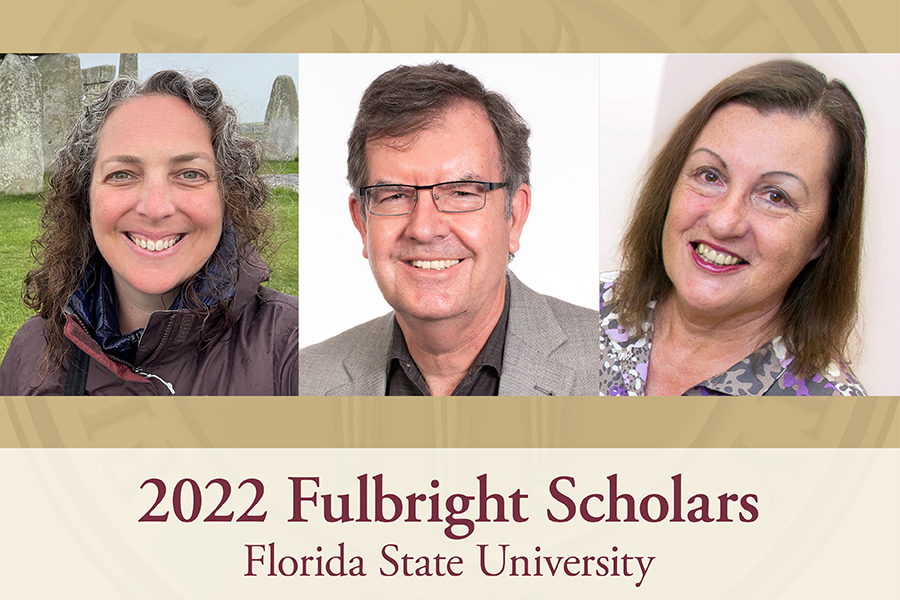
Three Florida State University researchers have earned prestigious Fulbright Scholar Fellowships that will see them take their research abroad in the coming year.
This year’s winners from FSU are:
Carl Schmertmann, the William J. Serow Professor of Economics and the director of FSU’s Center for Demography and Population Health.
Schmertmann is heading to Belo Horizonte, a city in northeastern Brazil, where he will work with researchers at the Federal University of Minas Gerais. His work will tackle problems in Brazil’s life-expectancy estimates.
Brazil’s unreliable life-expectancy rates influence health care, he said.
“It’s important to accurately estimate health and mortality because that’s how medical funding gets targeted,” Schmertmann said. “Expectancy estimates help identify places that the government would want to prioritize.”
He added: “It’s a great place to get this work done. There’s a really good Ph.D. program and training program at the place I’m going that attracts people from other Latin American and African countries. So I’ll have the opportunity to meet a broader set of up-and-coming demographers.”
Schmertmann’s ties to Brazil run deep. He met his wife on a student trip there and completed his post-doctorate work at Federal University of Minas Gerais. He has been back to the country several times since.
He said he hopes FSU will benefit from his Fulbright.
“I am excited to try to build more ties to FSU demography and to the institution in general and attract students and possibly future post doctorates to FSU,” he said. “That’s an important part of this work; it helps plug FSU into a bigger network, and that’s good.”
Jen Atkins, associate professor of dance in the College of Fine Arts.
Atkins will be working at various places in Norway. Her research focuses on dance yet incorporates a broad range of disciplines, including American history, culture, gender and popular culture.
“I look at how the moving body in daily life is deeply meaningful, especially in expressing, reflecting and even anticipating what we characterize as ‘American’ identities,” she said.
Through self-designed workshops that fuse American history, politics and culture with dance studies and popular culture, she plans to visit high schools throughout Norway and share workshops with students so they can practice English while learning about American life.
“While there, I’ll also share pedagogy workshops about decoding movement description, incorporating popular culture into lesson plans, and the educational power of play in the classroom,” she said. “For me, this is a distinct chance to focus intently on honing my pedagogical approaches and to learn more about what our newest generation of students need in terms of how they learn.”
She added: “My hope is to continually become a better teacher and to glean fresh insights about how to see the world and ourselves.”
Jasminka Ilich-Ernst, professor of nutrition, formerly in College of Health and Human Sciences.
Ilich-Ernst retired from FSU in 2018 and remains a faculty affiliate with FSU’s Institute for Successful Longevity. For her Fulbright beginning this fall, she will work in the Department of Nutritional Biochemistry and Dietology at the University of Belgrade in Serbia.
“I will investigate the influence of macro- and micro-nutrients and bioactive food components in decreasing chronic inflammation and improving body composition outcomes,” she said.
Ilich-Ernst was born and raised in the former Yugoslavia, which includes Serbia, and moved to the U.S. in 1983. She said she hopes to educate and be educated during her work in her homeland.
“By giving lay-public seminars in my native language, I can contribute to the overall public health education,” she said. “My desire is not only to help the people of my region improve their educational and research opportunities but to learn from them, particularly from the leading translational research they are conducting.”
She added: “Ever since I left that region and came to the U.S., I envisioned offering similar experiences and opportunities that I had in America to the motivated researchers in my homeland.”




